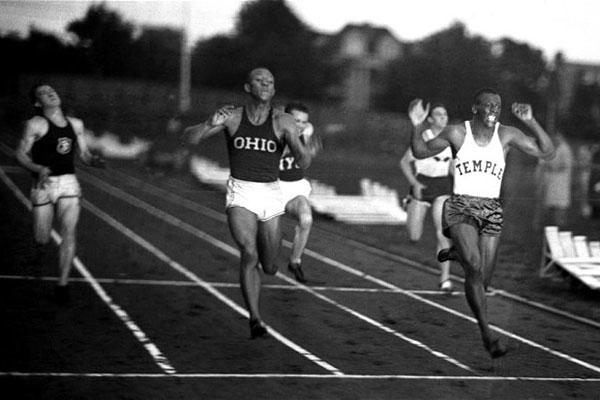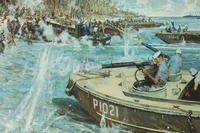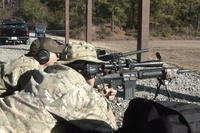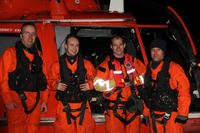Written by Petty Officer 1st Class Judy Silverstein with contributions from Lt. Cmdr. Bill McKinstry.
While opening night ceremonies of the 30th Olympiad stir the imagination, inspire and invoke a sense of community, the United States Coast Guard has its own ties to the games.
Eagle and the 1972 Olympics
Edmond Morris, a civilian port security specialist at Sector St. Petersburg, was a cadet on Coast Guard Cutter Eagle which sailed to the 1972 Olympics. Ironically, it was the ship's first trans-Atlantic voyage since World War II. Morris was entering his third year at the Coast Guard Academy and recalls sailing with all 240 of his classmates and the permanent enlisted crew.
"That was unusual," Morris said. "It was also lots of work. Tacking the ship back and forth into the wind was an all-hands evolution, and something we did about 10 times each day."
Although the 1972 Munich games were eventually marred by tragedy, Eagle was positioned in Kiel, Germany – site of the Olympic water events.
"We were part of the activities associated with the tall ship competition," Morris said.
Several memories stick with him, including the pageantry and prominent display of Olympic flags throughout Kiel.
"I also clearly remember the captain of the German ship came aboard for a tour of Eagle and said he'd served about the ship when it was designated the Horst Wessel," Morris said.
He recalls another visitor pointing at Eagle and saying affably, "That's not Eagle, that's Horst Wessel!"
Morris was one of many crewmembers sent to other foreign vessels for about a week while in Germany. He served as helmsman aboard the L'Etoile, a French ship, while she sailed up the Lubeck River.
"Everything was tremendously different aboard their ship," recalled Morris. "They spoke to me in French, so there was a lot of pointing," he said, chuckling. "They even served wine."
Though the cadets flew back to New London, Conn., to resume their studies, Morris fondly recalls his participation in the tall ship competition and the 1972 Olympic Games.
"It was really something…quite an honor in fact, to be part of the festivities."
Eulace Peacock and the 1936 Olympics
The Coast Guard also boasts among its former members Olympic-hopeful Eulace Peacock, an American whose much-heralded track and field abilities rivaled those of Jesse Owens. Journalists often referenced Peacock's nickname, "The World's Fastest Human" in articles detailing his impressive athletic accomplishments.
Peacock competed with the U.S. track team in 1934 and 1935. Although he tied the 100–meter world record at Oslo, Norway, in 1934, he was sidelined by a hamstring injury the following year.
In fact, Peacock beat Owens in several races leading up to the 1936 Olympic Games in Berlin. At a 1935 championship meet in Lincoln, Neb., he defeated both Owens and Ralph Metcalf in the 100–meter dash. Yet despite the competition, Peacock and Owens became great friends, even co-owning a meat business together, The Owens and Peacock Co. Sadly, a second hamstring injury at the 1936 Penn Relays destroyed that year's hopes of making the U.S. Olympic team. Despite missing his bid on the team, Peacock earned his place as America's national champion in 1933, ‘34, ‘37, ‘43, ‘44 and ‘45.
He taught school before enlisting in the Coast Guard, serving from 1942 to 1945 as a chief petty officer. Peacock also assisted fellow Coast Guardsman and world heavyweight champion, William Harrison "Jack" Dempsey, training new recruits. Peacock further distinguished himself coaching the only military service team to ever win a college championship at the time. His athletic accomplishments earned him a place officiating for the Amateur Athletic Union, NCAA, Intercollegiate Association of Amateur Athletes of America and Olympic Trial Track Championships.
While following the U.S. team in track and field events during the next three weeks, take a moment to remember Eulace Peacock, a Temple University graduate who never lost a dual-meet competition.






